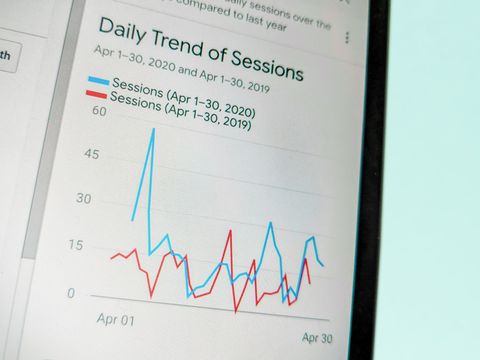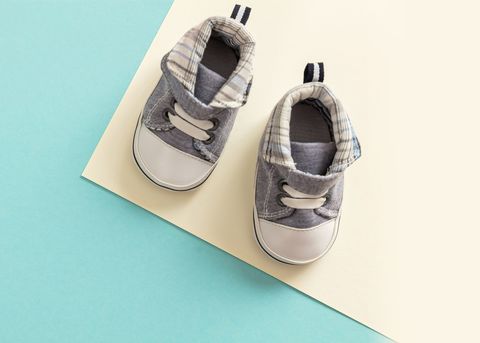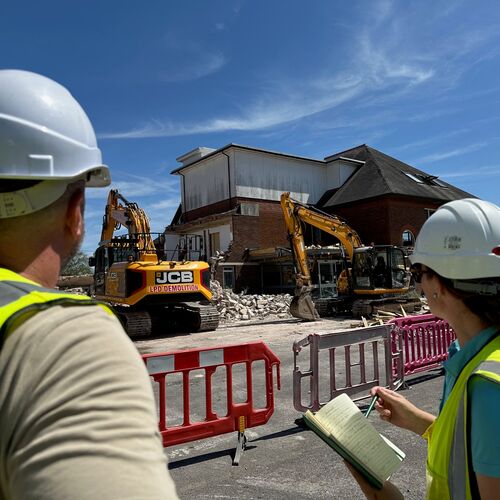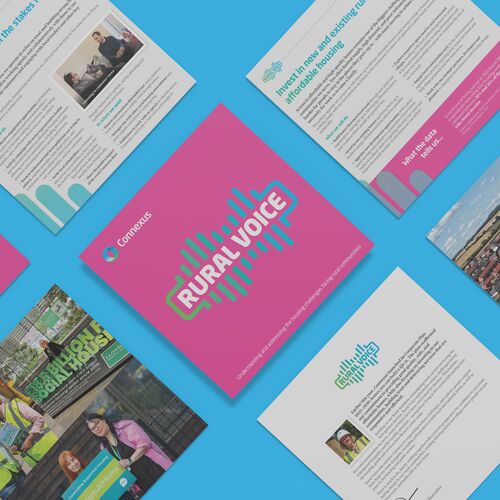Inside the crisis - Domestic abuse, the data behind the rise

The Coronavirus crisis has brought with it, both direct and indirect victims. This virus, while attacking some of our society’s most physically vulnerable, has also indirectly attacked those who are now trapped at home with abusers.
During the lockdown (now on its 6th week), levels of reported domestic abuse cases have seen a monumental increase. One domestic abuse charity, Refuge, reporting a 700% increase to its helpline in a single day.
Connexus’s very own Shropshire based domestic abuse service (SDAS) has seen a slight increase in website traffic (year on year for April), yet not to the same magnitude as figures reported by Refuge and perhaps somewhat intriguingly, referrals to the service remain at pre lockdown levels. We're about to question some of the headlines and delve into what the data's predicting could happen with what experts are referring to as a “post lockdown surge”.

Headlines are documenting significant increases in calls to domestic abuse services along with painful statistics of deaths to domestic abuse reaching an 11-year high. These figures are striking, yet it would seem that across the UK services are seeing no peaks in referrals, referrals being the action of reaching out and accepting a person into a refuge, in some case, services are in-fact seeing a decrease.
Wendy Bulman from the Connexus operated, Shropshire Domestic Abuse Service (SDAS) describes how at the start of the lockdown she posted a simple question to other domestic abuse services; Are you seeing an increase in referrals? She describes how, from Scotland to Cornwall there was a collective “no” (albeit with a few spikes).
Why is this? Well, the very nature of a lockdown means that abusers and those being abused are together. They’re together without any restpite, and so, making referrals becomes more difficult. Perhaps a brief website search or a phone-call but not a referral. These it’s predicted will come once we see a relaxation of the lockdown measures when those being abused are granted more time outside of their home.
Elaine De Fries, Director of operations at The Pankhurst Trust, which incorporates Manchester Women’s Aid talking to Good House Keeping describes the scenario in harrowing detail;
Countries who have already come out of lockdown are now reporting significant spikes in referrals once restrictions are lifted. And as a recent New York Times article highlights; post lockdown, we’re then also likely to see an increase yet again due to triggers such as abusers losing their jobs or suffering a series of financial setbacks and thus more likely to abuse their partners.
As we look towards the end of lockdown, services are planning for what they are predicting to be the first of 2 surges in referrals to their services. The first serge will come once less stringent measures are in place. Services like SDAS are already working to both increase accommodation capacity and resources more generally, including staffing but also those around Outreach support.
The second wave is anticipated when schools return to normal. Children from abusive households, who've perhaps been less viable during lockdown would now back into systems where once again, concerns and subsequent referrals can be made.
Wendy and the team at SDAS are anticipating a rise not only in referrals but also the severity of the conditions of those escaping their abusers;

It would seem then, we’re about to enter a period of intense demand for domestic abuse services.
These services will not only need to manage an increase in referrals and thus resources, but also need to be able to offer greater support for a greater number of individuals with more complex mental health needs. Mental health needs that arise amongst people who’ve been in isolation, perhaps akin to prisoners of war.
Lockdown has significantly impacted day to day life, yet for many governments the impacts of these actions on society more generally was an afterthought. With responses to the issues often being an afterthought with both domestic abuse and mental health fitting into these categories.
The takeaway from this isn’t that domestic abuse is on the rise. It is perhaps that, if you run or work with services linked to domestic abuse, these initial findings should be taken as a resounding cry to get ready for a significant surge for support services and referrals once lockdown measures are eased.
In an emergency always call the police on 999, once connected if you are unable to speak, press 55 and they will know you are in danger and respond.
-
National 24 hour Domestic Violence Helpline - 0808 2000 247
-
West Mercia Women's Aid - Herefordshire, Shropshire, Telford and Wrekin – 0800 783 1359
-
Shropshire Domestic Abuse Helpline 24 hours - 0800 7831 359
-
Shropshire Domestic Abuse Service – 0300 303 1191
-
M.A.L.E (Men's Advice Line and Enquiries) - 0808 801 0327
-
LGBT Foundation - 0845 330 3030
-
Refuge – 0808 200 0247
-
Respect helpline – 0808 802 4040 (for anyone worried that they may be harming someone else)
-
Galop – 0800 999 5428 (national helpline for lesbian, gay, bisexual and trans people experiencing domestic abuse)
-
Forced Marriage Unit – 0207 008 015
This article is part of a weekly "inside the crisis" series. Here, we explore and share our insights on the effects of Covid-19.
What we've learnt as a company, will there be a new normal? | Food banks and community

Edinburgh House, Wem, Shropshire

Connexus launches Rural Voice

Marton, Shropshire

Iconic Shrewsbury housing development completed

Over 200 homes delivered across Shropshire and Herefordshire
